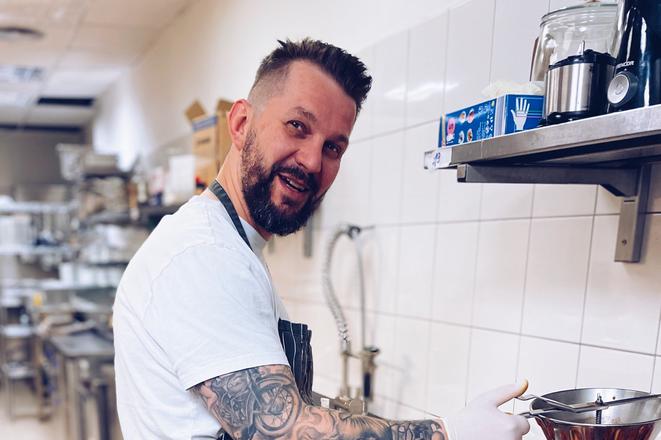Daniel Karas can trace his love of fermented food all the way back to his early childhood. One of his earliest memories is of sitting on the couch in his family’s living room, eating sauerkraut. But it wasn’t until a decade ago when he visited a now-defunct restaurant in Bratislava that he developed a passion for what is today the cornerstone of his burgeoning fermented food business - the Korean specialty kimchi.
“Its taste may have triggered a memory of fermented vegetables from my childhood, but the overall complexity of kimchi’s flavour was much stronger, it had more umami flavours,” Karas told The Slovak Spectator. “It was a complete explosion in my taste buds.”
Not just fermented cabbage
While in Slovakia most people know only the Napa cabbage kimchi, kimchi is actually a general term in Korea used to describe vegetables which have been fermented using the process of lactic acid fermentation – the same method of naturally preserving food used to make sauerkraut.
Benefits of fermented vegetables
improves gut function
restores intestinal microflora after use of antibiotics
can help in preventing certain types of cancer
strengthens gut microbiome
antioxidant effect - prevent the proliferation of pathogenic microorganisms and yeasts
maintain optimal pH in intestine
can help in improving mental health. Also contain probiotics
Source: Rodkva Ferments
“It means something fermented, whether it’s radish, cabbage, scallions, there are different alternatives to kimchi in Korea,” says Karas.
At the time he made his fateful trip to the Korean restaurant, Karas was working as a chef and he realised how kimchi could be used to liven up dishes.
He started making his own kimchi in 2014, after attending a presentation on different types of kimchi, under the supervision of a Korean kimchi expert at the Korean Embassy.
“I tried making kimchi using recipes I found on the internet,” says Karas. He also experimented with other vegetables such as white radish and radish leaves, fermented dill seeds, and made salsa from green chillies, too. “I totally fell for it,” he says. He used shrimp paste or fish sauce in his fermented products to boost the umami flavour of the kimchi itself.
After speaking to various people who told him they didn’t eat animal products he tried a vegan version, adjusting the flavours so that the finished product would go down well with both vegans and meat eaters.
To further read in this article
What award Daniel Karas has won and for which products
What is his dream
Recipe for vegan kimchi by Daniel Karas
It took some years of fine-tuning, but he got there in the end.


 Daniel Karas preparing his vegan kimchi in Stará Tržnica. (source: Courtesy of Rodkva Ferments)
Daniel Karas preparing his vegan kimchi in Stará Tržnica. (source: Courtesy of Rodkva Ferments)